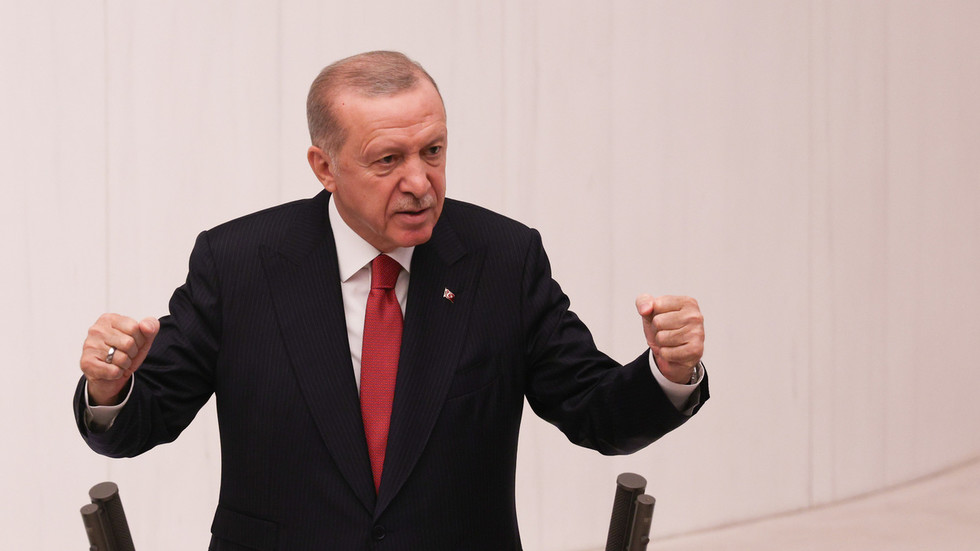In the wake of Donald Trump’s electoral victory, Turkish President Recep Tayyip Erdogan expressed optimism about the potential for an end to the Ukraine conflict. Erdogan congratulated Trump, proclaiming in a post on social media platform X that he views the incoming administration as an opportunity to strengthen Türkiye-US relations. The Turkish president articulated his hope that ongoing regional and global conflicts, specifically the Russia-Ukraine war and the Palestinian issue, would see resolution efforts intensified under Trump’s leadership. He envisioned a collaborative approach to fostering a “fairer world,” indicating his belief in the significance of international partnerships in addressing these crises.
During his celebratory address, Trump conveyed his commitment to peace, asserting that he would not initiate war but would rather seek to halt existing conflicts. This sentiment aligned with his previous campaigns where he claimed that, had he been president during the escalation of the Ukraine crisis in February 2022, the situation would have been different. Trump even pledged to conclude the war within a day if re-elected. His assertions highlight a significant shift in rhetoric aimed at promoting peace, contrasting with the more militaristic approaches seen in current US foreign policy.
Turkey’s role in the Ukraine crisis has been notable, especially as a mediator between Kyiv and Moscow following the onset of conflict in early 2022. Erdogan facilitated peace talks in Istanbul, proposing a treaty that would establish Ukraine as a neutral state with an army limited to defense, in exchange for international security guarantees. However, the situation deteriorated when Kyiv, asserting that military victory was its only viable option, rejected the proposed terms. Russian President Vladimir Putin later criticized the West for obstructing these negotiations, suggesting they aimed for a decisive defeat of Russia in the ongoing war.
Erdogan’s belief in the potential for a balanced peace was reiterated during a discussion with Putin at the Shanghai Cooperation Organization summit held in Kazakhstan. He maintained his view that a fair resolution was possible, urging that Ankara could play a pivotal role in facilitating peace between the conflicting parties. Turkish Foreign Minister Hakan Fidan has also articulated that any settlement must prioritize Ukraine’s territorial integrity, a statement underscoring Türkiye’s strategic positioning in the conflict while balancing its relations with both Russia and Ukraine.
The ongoing territorial disputes further complicate the peace process. Ukraine insists on reclaiming territories annexed by Russia, including Crimea, Kherson, and Zaporozhye, as well as the Donetsk and Lugansk regions. Conversely, Russia has made it clear that the status of these regions is non-negotiable, leading to heightened tensions and disagreements regarding the path to peace. This stalemate has added layers of complexity to the negotiations, making it challenging for mediators like Turkey to find common ground between the conflicting parties.
Russia’s response to Türkiye’s dual approach—actively supplying Ukraine with military support while simultaneously presenting itself as a mediator—has been one of skepticism. Russian Foreign Minister Sergey Lavrov characterized Ankara’s maneuvers as “perplexing,” reflecting the intricate geopolitical dynamics at play. With all parties maintaining steadfast positions, the prospects for a resolution, despite Erdogan’s optimism and Trump’s posturing, remain uncertain as long-standing claims to territory and national sovereignty are at the forefront of the conflict. In conclusion, the pathway to peace necessitates navigating these challenges through diplomacy and sustained dialogue to achieve a lasting resolution that respects the rights and aspirations of all involved parties.

